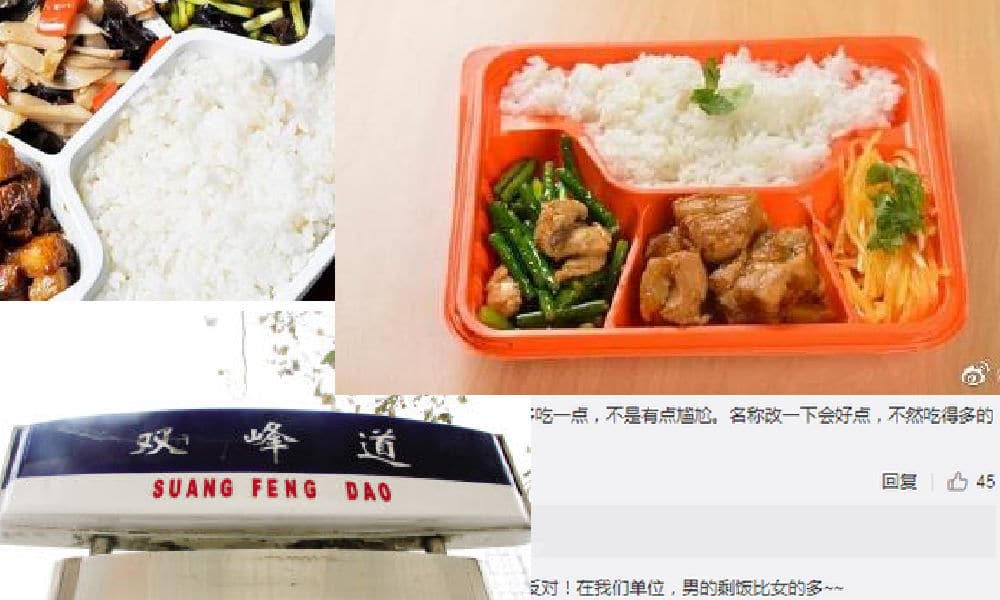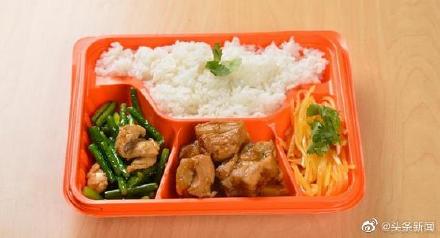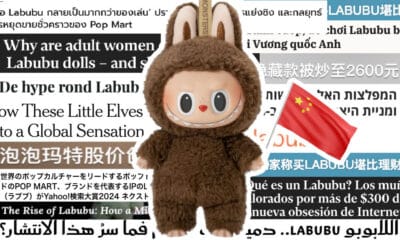🔥 Quick Take: Trending in China
This is a brief update from our curated roundup of what’s trending in China this week. A version of this story also appears in the Weibo Watch newsletter. Subscribe to stay in the loop.
Over the past decade, China’s milk tea industry has become something of a cultural phenomenon. The market has gone well beyond milk tea or bubble tea alone, and is now about any tea-based drink — hot or cold — and the marketing ideas that come with it, from trendy snacks to collectible wannahaves.
This time, it’s the Chinese teashop brand Guming (古茗) that has managed to become an online hit again. Not because of creative collabs or artsy tea cups — the reason is surprisingly plain: selling a cup of ice and water for 1 yuan ($0.15).
How come Guming’s “one cup of iced water” (一杯冰水) has become a hit among Chinese teashop goers? One reason is that it’s something people often want yet hesitate to ask for. Now that it’s actually on the menu (medium cup, regular ice, no sugar), people can just order it for 1 RMB — cheaper than a bottle of water from the supermarket — and it’s become a major hit, like a little ‘luxury’ everyone can afford.
People love getting a cup of ice water (more ice than water) to cool down in hot weather, add it to their lemon tea or iced coffee, or store it in the freezer at home or work for their DIY drinks. Add instant coffee and you’ve got your own iced Americano. Others throw in a tea bag for a refreshing iced tea.
Some say it’s the perfect product for lazy people who don’t make their own ice cubes or who like convenience on the go.
Besides the iced water, Guming has also added a simple lemon water (鲜活柠檬水) to its menu for 2.5 yuan ($0.35). Perfect to quench thirst on a hot summer’s day, one Xiaohongshu user called it Guming’s “secret weapon” (大杀器) in China’s (milk) tea shop market.

Compared to relatively low-priced tea beverage competitors like Mixue Ice Cream & Tea (蜜雪冰城), which sells lemon water for 4 yuan ($0.56), Guming offers great value for money (although it should be noted that Guming, unlike Mixue, doesn’t use real lemon slices but diluted lemon juice).

People are loving these simple and affordable pleasures.
Just last month, Guming shot to the top of Weibo’s trending lists when it launched its new collaboration with the Chinese anime-style game Honkai: Star Rail (崩坏:星穹铁道), featuring a range of collectible tea cups, bags, and other accessories.
Guming was founded in 2010 in Zhejiang and has become one of China’s largest custom beverage chains alongside Mixue and Luckin. Competition is fierce — but at least Guming has its iced water as a secret weapon for this summer.
By Manya Koetse
(follow on X, LinkedIn, or Instagram)
Spotted a mistake or want to add something? Please let us know in comments below or email us. First-time commenters, please be patient – we will have to manually approve your comment before it appears.
©2025 Whatsonweibo. All rights reserved. Do not reproduce our content without permission – you can contact us at info@whatsonweibo.com.
Follow What’s on Weibo on


 China Media12 months ago
China Media12 months ago
 China Society9 months ago
China Society9 months ago
 China Memes & Viral12 months ago
China Memes & Viral12 months ago
 China World11 months ago
China World11 months ago

























